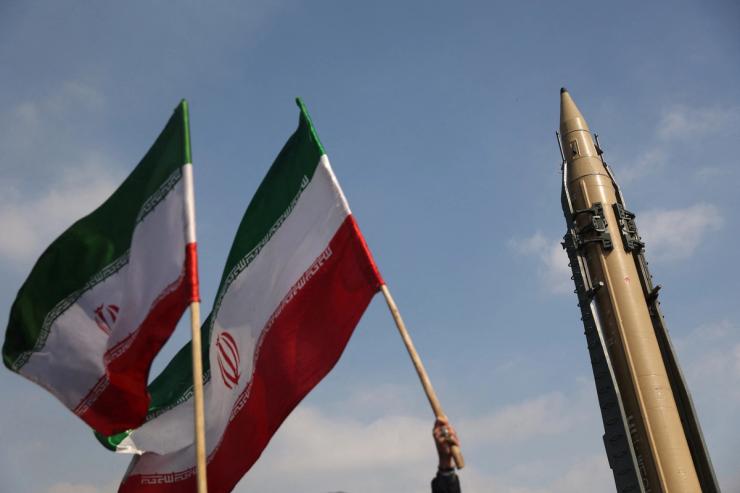The News
A Kremlin official said that Russia and the US are set to discuss the issue of Iran’s growing nuclear program, offering to help mediate talks between Washington and Tehran.
“This is what was proposed, to make this a separate area of our dialogue, our consultations in the future,” Kremlin spokesperson Dmitry Peskov told reporters. Bloomberg was the first to report the proposal.
Russia was first to raise the idea with US officials, a person familiar with the matter told Semafor. US President Donald Trump reportedly mentioned the idea indirectly in a phone call with Russian President Vladimir Putin last month; senior officials from both countries also discussed the matter at Feb. 18 talks in Saudi Arabia, Bloomberg reported.
“The United States will not tolerate Iran obtaining a nuclear weapon or their support of terror in the Middle East and around the world,” US National Security Council spokesman Brian Hughes told Semafor. “The Trump administration will talk to our adversaries and allies alike, but [it] will always do so from a position of strength to defend our national security.”
Iran has been rapidly expanding its production of highly-enriched uranium, and officials there are starting to speak increasingly openly about the possibility of pursuing nuclear weapons. The United Nation’s nuclear watchdog on Monday urged Iran and the US to start nuclear talks, and that it was in communication with the Trump administration.
SIGNALS
Iran remains ‘downbeat’ on potential for US negotiations
Iran has increased its stockpile of near weapons-grade uranium by 50% since DonaldTrump’s reelection, a UN agency warned, with the future potential for Iran to build roughly six nuclear warheads. Tehran is closer than ever to building a nuclear weapon, an Iran expert argued: As the country has been weakened over the last year, “the allure of acquiring nuclear weapons grows.” Iranian officials are also “downbeat on the talks with the US,” with Iran’s leader calling attempting negotiations with Washington “pointless,” one analyst said. In fact, Tehran officials have cited the catastrophic meeting between Trump and Ukraine’s President Volodymyr Zelenskyy as proof the US cannot be trusted, The New York Times reported.
Israel mulls a knock-out blow to Iran’s nuclear program
Israel’s assault on many of Iran’s regional proxies have provided what some Israeli officials believe is a golden opportunity to attack its nuclear program. Israel has already targeted key Iranian air defense systems, leaving the country “essentially naked,” a former US official said. The overwhelming majority of Israelis support a strike on Iran, but Israel wants US support in order to get access to weapons that would be more likely to destroy Iran’s heavily protected underground facilities. The US, however, appears to prefer a diplomatic approach. Still, Israel “may conclude it cannot squander a window of Iranian vulnerability on a gamble that maximum pressure will eventually force Tehran to take a step back,” a former US official wrote in War on the Rocks.
Iran and Russia’s partnership has its own limits
While Moscow and Tehran inked a wide-ranging treaty in January that was presented as a breakthrough in relations between the two countries, analysts have argued that the deal did not substantially deepen their relationship. The two countries did not agree to a mutual assistance clause in case either country comes under attack, as Russia has with North Korea, or any other significant obligations, one expert noted. The partnership is one of convenience driven by Russia’s need for support for its war in Ukraine, one analyst argued in Responsible Statecraft. If a ceasefire there is reached, “Iran’s strategic importance to Moscow would decline.” Russia may also be willing to sideline Iran diplomatically to improve its ties to the Trump administration, especially if it no longer needs Tehran’s drones or military equipment.



